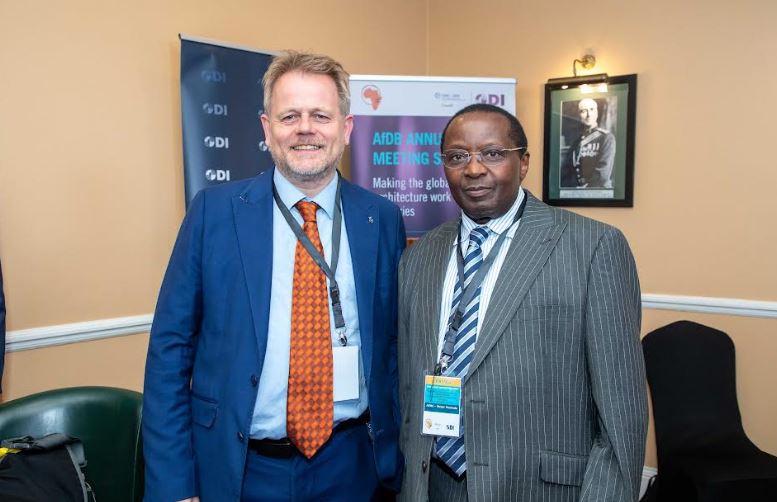The African Economic Research Consortium (AERC), in partnership with Canada’s International Development Research Centre (IDRC), has held the annual AfDP meeting with the goal of sharing evidence and policy proposals on global financial architecture reforms that benefit all African countries and strengthen national economic policies.
The Chief Economist of the Central Bank of Kenya (CBK), Dr. Robert Mudida, said that Kenya is known for a lot of financial innovation, and it is already very advanced on the same.
He revealed that Kenya has moved from 27 per cent form of financial inclusion in 2006 to 84 per cent in the last financial inclusion survey in 2021.
Mudida mentioned that beyond just access, they are not only looking at the quality of products but also the extent to which they solve everyday problems.
In the last finances survey, the Chief Economist noted that while formal financial inclusion is increasing, financial health seems to be declining, which makes the ordinary citizen to struggle.
“We spent a long time refining these instruments on financial health,” said Mudida, adding that this time around something more vigorous has been done in terms of instrument development.
He at the same time highlighted the co-mandate of central banks, including price stability, which is the main one, and financial stability.
Further, Mudida stated that there has been a need to sort of re-conceptualize certain critical issues because of the shocks that many central banks are facing around the world, adding that the tools of central banks are all geared towards management.
He added that critical reports have been undertaken, noting that the country is currently under inflation targeting monetary policy regime; therefore, a ten-year period of transition has been made.
“About 30 per cent of the inflation was actually explained by the exchange rate, firstly because of the depreciation of the shilling, so that was really a major challenge,” disclosed Mudida.
According to the Chief Economist, this year, in terms of exchange rate, has been of much greater stability as the shilling has appreciated since January by about 17 per cent, which is one of the best performing currencies around the world.
He pointed out that in February, an infrastructure bond was issued that was four times oversubdued, stating that most of the inflation has been driven by food inflation because of the worst past years of performance in the agricultural sector.
Mudida cited the current challenges African countries are facing are not solvency ones but temporary ones, and that measures taken should enhance liquidity in African colonies.
“The Central Bank does not have a view of what the exchange rate level should be because we have a flexible exchange rate system, so the exchange rate is determined primarily by forces of demand and supply,” he maintained, adding that the Central Bank only comes in to deal with excess volatility.
Additionally, Mudida said that African countries have been particularly vulnerable to climate shocks, and this has really impacted livelihoods in a very critical way.
He further announced that in October 2021, the Central Bank of Kenya was one of the first ones to introduce climate change guidelines to commercial banks, which emphasized the need for them to take climate change shocks into account in both their strategy and risk management.
“We came up with a sector-specific survey that was not there before for the agricultural sector just to understand the impact of some of these drivers,” stated Mudida, noting that in their stress testing framework, they specifically introduced an element.
“One of the shocks that we actually analyse explicitly is climate shock,’’ he added.
Concurrently, AERC, Executive Director Prof. Victor Murinde said that the session is a critical platform to address the urgent need for reforming the global financial architecture to better support African countries.
“By sharing evidence-based policy proposals, we can foster resilience and sustainable growth in the face of global shocks,” he reiterated.
By Gathigia Ng’aari and Zainap Mong’are





